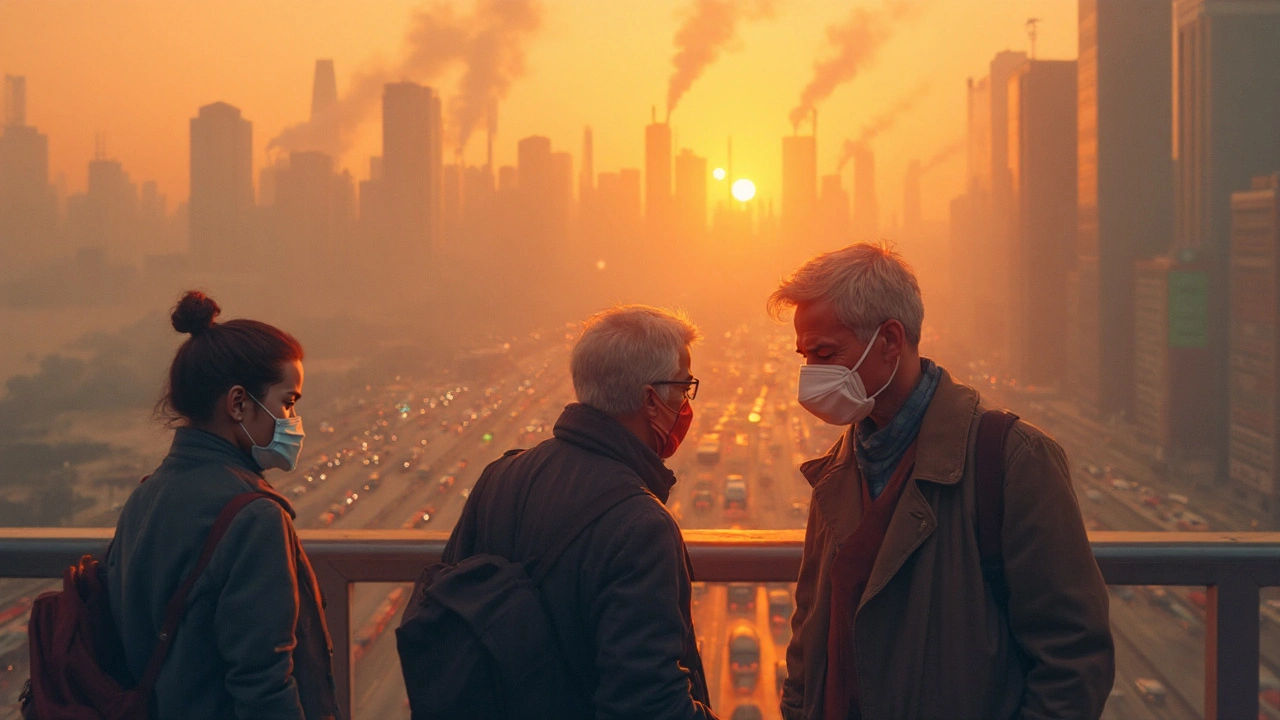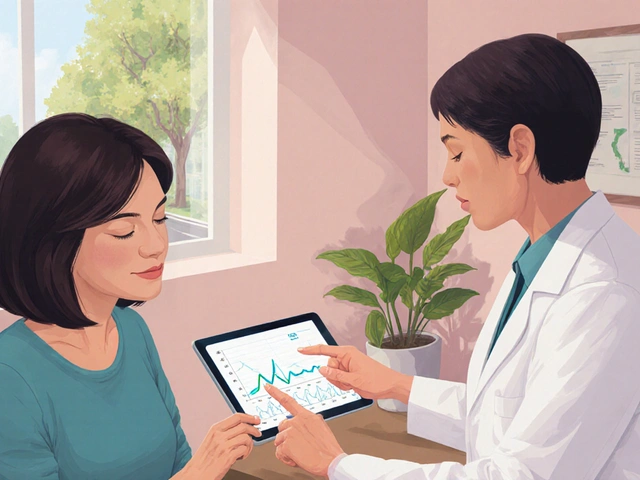Air Pollution and Your Health: What You Need to Know
Every time you step outside, tiny particles are riding the air you breathe. Those particles can irritate your lungs, trigger allergies, and even mess with the way your medicines work. If you’ve ever felt short‑of‑breath on a smoggy day or noticed your asthma flare up after a traffic jam, you already know how real this problem is.
How Air Pollution Affects Your Body
Air pollution isn’t just a vague buzzword; it’s a mix of gases, dust, and chemicals that can slip into your bloodstream through your lungs. Short‑term exposure can cause coughing, throat irritation, and watery eyes. Long‑term exposure is linked to chronic bronchial asthma, reduced lung function, and even cardiovascular issues. For people taking medications like inhaled corticosteroids for asthma, polluted air can make the drugs less effective, forcing higher doses or extra rescue inhalers.
One of our most read articles, “How Bronchial Asthma Interacts with Respiratory Infections,” shows that polluted air creates a perfect storm for infections. The same logic applies to other conditions—if you’re on blood thinners or heart meds, the extra stress on your cardiovascular system from polluted air can raise the risk of side effects.
Practical Steps to Cut Your Exposure
First, check the local air‑quality index (AQI) on your phone before heading out. When AQI spikes above 100, try to stay indoors or wear a N95 mask if you must go outside. Keep windows closed during rush hour and use a HEPA filter in your bedroom; it can remove up to 99% of fine particles.
Plants can help a little, but they’re not miracle cleaners. Instead, focus on cleaning habits that reduce indoor pollutants—avoid smoking, use low‑VOC paints, and vent the kitchen while cooking. If you have a garden, rinsing your veggies removes dust that settled from the air.
For those on medication, talk to your pharmacist about how air quality might affect dosing. Some antihistamines work better when you limit exposure, and your doctor may adjust inhaler use based on AQI forecasts.
Lastly, community action matters. Supporting local policies that limit industrial emissions or expand green transit can lower overall pollution levels. Even small changes, like car‑pooling or biking, add up and improve the air you and your neighbors breathe.
Air pollution is a daily reality, but you don’t have to let it dictate your health. By staying informed, adjusting habits, and syncing your medication plan with the environment, you can protect your lungs, heart, and overall well‑being.
How Air Pollution Fuels Lung Inflammation: Causes, Risks, and Solutions
By Joe Barnett On 24 Aug, 2025 Comments (10)

Explore how air pollution triggers lung inflammation, the role of key pollutants, health impacts, and practical steps to protect your lungs.
View More


